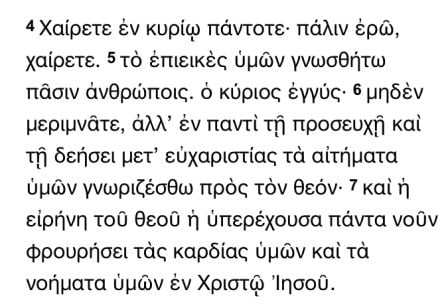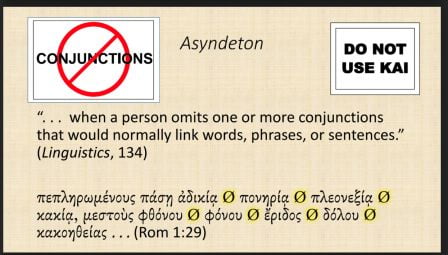Saturday, February 27, 2021
6:05 AM With the rise of computer programs, websites, and online tools, you can do just about any aspect of exegesis well. But to read and interpret participles, well, you’ll need to be able to encounter the text for yourself. Greek (as is often said) is a participle-loving language. That’s why I am excited to be teaching the participle in my Greek 2 classes when we return from spring break.
To be frank, participles are often the most significant elements in the expression of thought and are key to understanding what an author is trying to say. Therefore, understanding the basic uses of the participle is a key to correct interpretation and application of the New Testament.
Part of the beauty of the Greek language is that the construction of its verbs and participles clearly shows who does the action, when the action happens, and whether the action is marked as being on the main line of the argument or not. By thinking through the participle, new vistas of insight will be opened to you. A good example is the “warning passage” in Heb. 6:4-6, where the shift from the 5 aorist participles to the 2 present tense participles is brilliant.
By the way, I’m so proud of my students for making it to “mile 20” of their Greek “marathon.” (My textbook has 26 chapters.) Every marathoner knows that the halfway point in a 26 mile race isn’t mile 13. It’s mile 20. In other words, you expend the same amount of energy in the last 6 miles of a marathon as you do in the first 20. But it is worth it. You will never regret your study of New Testament Greek. God is going to open a whole new world of understanding to you, and you are going to be so grateful to him.
(From Dave Black Online. Used by permission.













